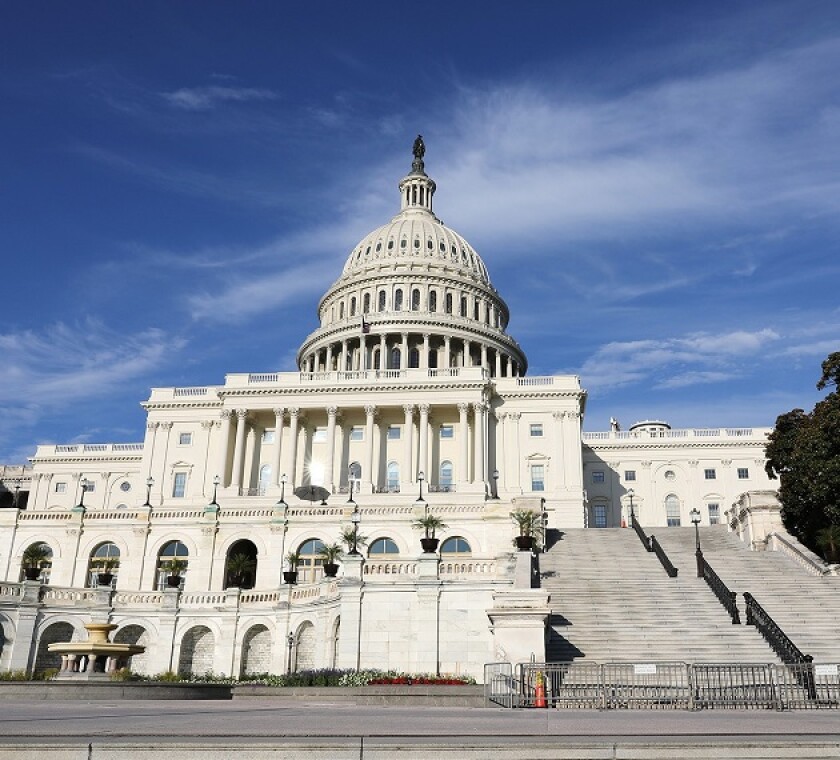Much like the past few years, 2022 looks set to be another year of struggle over global tax reform and implementation. The international tax system is undergoing the most important changes to be undertaken in a century.
Following an OECD-brokered landmark agreement on global tax reform, the world will be moving to implement the plan for a global minimum tax rate of 15% in 2022. US lawmakers are battling to get the proposal through Congress.
The Biden administration has tied the global minimum rate to its $1.75 trillion Build Back Better (BBB) infrastructure bill. This may prove to be a brilliant tactic or a terrible error. Failing to implement the rate would be a disaster since US support was so crucial to securing the global deal.
Meanwhile, the European Commission is pushing ahead with plans for a directive to make the plan reality. This comes at the same time as the EU is embarking on its ‘unshell’ directive and launching a consultation on VAT rules.
The pace of change is not limited to the global north. The Indian government is set to deliver its Union budget on February 1, including strong guidance on the minimum corporate rate. However, many reform proposals in the country have stalled in the past.
The OECD may have got support from 137 countries, but the roadmap for implementation is far from certain. The EU and the US are not the only parties whose support is integral to the success of the deal. As major global economies, Brazil, China, and India will play a key part in whether the reform plan succeeds.
Top headlines
Omicron forces businesses to reconsider TP risks for supply chains and IP
The Omicron wave has produced more supply chain disruption for companies around the world, just as there has been a surge in IP transactions. TP teams have to stay ahead of the pace of change.
The Omicron variant has led to further disturbance in supply chain models due to labour shortage from the surge in COVID-19 cases, increasing the cost of supply chains and affecting transfer pricing (TP) policies in place as businesses start near-shoring their production.
With the increase in intellectual property (IP) transactions as well, companies must keep up with any critical business change or risk facing a multi-year impact on their TP results.
“With the pandemic, the focus switched from what makes a business successful to whose fault is it you’re failing. Business drivers and how you look at your supply chain start to shift when you’re writing a TP policy. You’re looking at where the risks are controlled, mitigated, and managed,” said Kirsty Rockall, head of TP at Grant Thornton.
“If those sort of decisions or control of the risk isn’t taken in the centre but outside the local markets, you’ve got an automatic clash between TP policy and what is being done on the ground from a commercial perspective. Businesses have started nearshoring some of their supply chains,” added Rockall.
While the clash in TP policy became standard under the Delta variant, the Omicron wave has intensified businesses’ need to reassess their supply chain models. They have moved their production closer to the endpoint user while adjusting to the environment brought by the pandemic.
Governments debate cutting VAT on domestic energy bills
Countries including the UK are considering cutting VAT on domestic energy bills to mitigate rising prices due to the energy crisis. Meanwhile, energy firms could face a windfall tax.
An increasing number of European governments are considering using VAT policy to mitigate the effects of rising energy prices, caused by a long-running energy crisis, on their citizens. Romania and Spain are two countries that have cut VAT in response to soaring prices, while energy firms that have profited during the pandemic could face windfall taxes.
As the energy crisis intensifies, the UK trade body Energy UK has said that energy prices could rise by up to 50% in April 2022. The UK energy price cap, which limits the rates that energy companies can charge their customers, is due for re-evaluation on February 7, with the revised rates taking effect on April 1.
A fierce debate is ongoing in the UK over a proposal to scrap the 5% VAT rate on domestic energy use. According to estimates by the UK revenue authority, HM Revenue and Customs (HMRC), scrapping the tax would cost the government around £1.7 billion ($2.3 billion). This is at a time when government budgets are stretched due to the ongoing COVID-19 pandemic.
A motion by the opposition Labour Party to remove the VAT was defeated in a parliamentary vote on January 11. However, the issue of rising living costs is not going away.
At the same time, Romanian Prime Minister Nicolae Ciucă announced that citizens with a domestic energy bill of less than 300 kWh per month will qualify for a preferential VAT rate of 5% on their electricity, down from 19%.
Countries may be following the example of Spain, which in December extended its energy tax cuts to May 2022. The cuts included slashing the VAT on energy bills from 21% to 10% and cutting the special electricity tax from 5.1% to 0.5%.
Next week in ITR
ITR will be looking at budgeting trends for 2022. Many in-house tax teams are securing more budget for tax strategy, rather than focusing on compliance. Tax planning is not going away even in the era of international tax reform.
The UK has still not implemented public registers of beneficial ownership in crown dependencies such as Guernsey, the Isle of Man, and Jersey. This is despite the fact that the UK Parliament made such registers required by law in 2018.
ITR will be looking at why there has been a lack of movement on public registers. Politicians and campaigners are dismayed at the slow pace of reform.
Readers can expect these stories and plenty more next week. Don’t miss out on the key developments. Sign up for a free trial to ITR.













